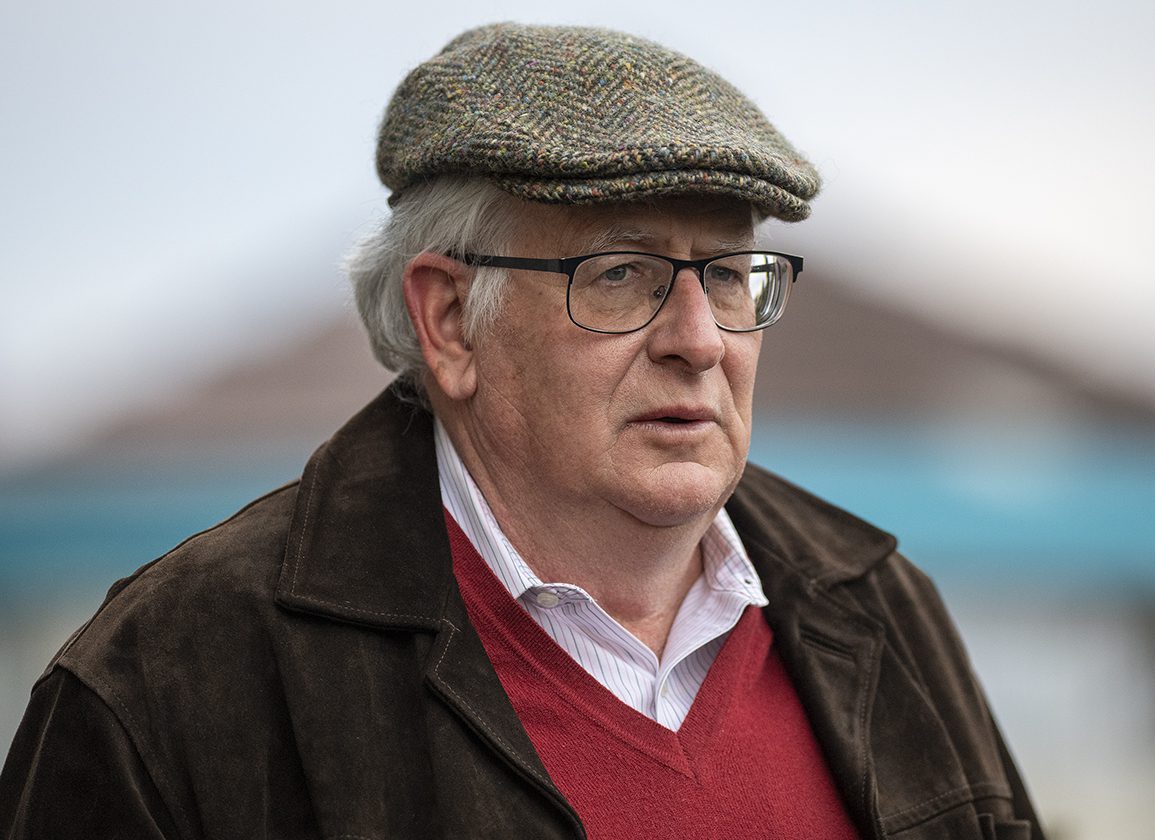Trainer Jimmy Jerkens didn't get off to a good start after he resettled in Saudi Arabia. But the longtime fixture on the New York racing circuit seems to have figured things out. He went into the weekend with 12 wins from 60 starters. Jerkens was the Green Group Guest of the Week on this weeks TDN Writers' Room Podcast presented by Keeneland and discussed a number of topics, including why he believes his career had taken a wrong turn before he left for Saudi Arabia, his future plans and what it's like to train in a country where everything was new and different.
So far as why his stable has heated up, Jerkens believes his horses have been rounding into form, which, he said, takes time when the tracks are as deep and tiring as they are in Saudi Arabia.
“The track is so deep and slow here,” he said. “I think my horses needed a run over it. Most of the horses, when they ran back, got better with each succeeding start. They hadn't trained over it or raced over it like some of the horses here have. When racing shifted here, to Riyadh, we had some fresh horses and they popped right away.”
Another adjustment he had to make was running horses back with less rest than they normally get between starts in the U.S. He said the racing managers for his owner, Prince Faisal bin Khalid Al Saud, and he don't always agree on racing schedules.
“I've been here for a little more than five months and I think I only have one horse that's run that's run four times,” Jerkens said. “I've been trying to stretch things out so they stay a little fresher and they get they get stronger instead of getting knocked out. But I get some resistance. The Prince's men want to run a little more sometimes than I do. Sometimes I talk them out of it and then other times I don't. It all depends on the situation.”
After working for his father, Hall of Famer Allen Jerkens, Jerkens went out on his own in 1997. By 2000, he had established himself as a steady winner on the New York circuit who had the type of stock that could compete in stakes. He won 59 races in 2000, good for a 28 percent winning rate, and won six stakes. His numbers stayed relatively stable and in 2018 he won 38 races with stable earnings of $2,922,392. But his fortunes declined every year thereafter and in 2022, his last full year in the U.S., he won just four races and had earnings of $365,995, which, he admitted, was causing financial problems. Looking back, he says he made a mistake when deciding not to expand his stable.
“When the stable was going really good, I had a chance to expand pretty good,” he said. “The owners were coming to me and I was getting offers to train more horses. I didn't really take it and go with it. I didn't want to get to be so big that I couldn't do the job the way I like to do it. In the long run, that hurt me. I probably should have done whatever it took to get the extra horses and keep it going. It's a numbers game now, especially the way horses are so disposable. I understand why those guys have so many horses, even if they spread themselves thin. Looking back, I realize you have get to get the horses in the barn. That's the bottom line. Get the horses in the barn.”
Elsewhere on the podcast, which is also sponsored by the Pennsylvania Horse Breeders Association, West Point Thoroughbreds, Lane's End, WinStar Farm and XBTV.com, the team of Zoe Cadman, Bill Finley and Randy Moss reviewed last weekend's races, which included impressive wins by Nysos (Nyquist) in the Bob Hope S. and Integration (Quality Road) in the GII Hill Prince S.
They also took a look at the latest news on GI Kentucky Derby winner Rich Strike (Keen Ice), who was pulled from the Keeneland November Sale and whose future remains up in the air, and they remembered the life and times of Hall of Fame jockey Bobby Ussery, who passed away last week at 88.
To listen to the audio version of the podcast, click here.
To watch the video version, click here.
Not a subscriber? Click here to sign up for the daily PDF or alerts.






